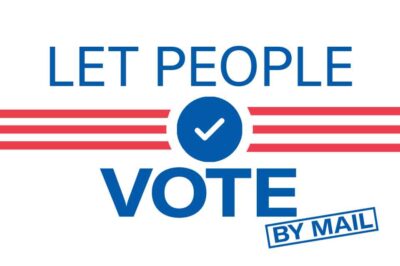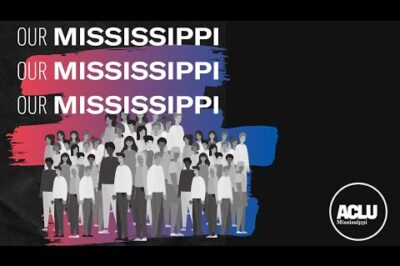Broad Coalition Including Youth & Elderly Object to Proposed Voting Restrictions
FOR IMMEDIATE RELEASE
CONTACT: (212) 549-2666; media@aclu.org
Augusta – A diverse coalition of groups call on the legislature today to reject new proposals that would roll back voting rights. The groups will testify in opposition to two bills, LD 199 and LD 203, which would eliminate same-day voter registration and require a photo ID for voting, at public hearings before the Committee on Veterans and Legal Affairs at the State House.
“Maine voters elected our leaders to fix the economy and create jobs, not roll back voting rights,” said Ann Luther, President of the League of Women Voters of Maine. “We urge the legislature to reject these expensive new government programs, designed to make it harder to vote.”
Implementing photo identification requirements on voting day is likely to cost the state of Maine millions of dollars. That’s because, in order to withstand a constitutional challenge under the Constitution, the State of Maine would have to offer the photo ID free of charge to Mainers who do not have one. Additionally, Maine would have to conduct thorough poll worker training on the new law and broad voter education to ensure voters know about the new law. Since 2007, the state of Indiana has spent over $10 million dollars in free IDs for voters and over $2 million in voter education programs pursuant to its voter ID law.[1]
“These bills are solutions in search of a non-existent problem,” said Shenna Bellows, Executive Director of the Maine Civil Liberties Union. “There’s no good reason to spend millions of dollars to make it harder for Mainers to vote.”
Proponents of a photo ID and eliminating same day voter registration have suggested that the measures would eliminate voter fraud, but only two known cases of an individual voting twice have been identified in the past thirty years in Maine. Advocates on behalf of people with disabilities, young people, the elderly, women, and people of color worry that the proposed bills will result in legitimate voters being turned away from the polls on Election Day. The experience in states like Indiana is that some people, such as a group of Indiana nuns in 2008, will be turned away for failure to produce an ID.[2]
“Voting is fundamental to our democracy and our future,” said Sara Squires of the Disability Rights Center. “We urge legislators to oppose these bills, which would make it harder for Mainers with disabilities to exercise our constitutional right to vote.”
Same day voter registration was passed into law unanimously by the Maine State Legislature when it was last controlled by the Republicans in 1973. At the time, Senator Elden H. Shute (R-Farmington) was the chief sponsor. The Maine Supreme Judicial Court issued an opinion in 1973 (303 A.2d 452), which appears to support same-day voter registration, stating that any durational residency requirement would be constitutionally permissible only as far as it was necessary for the actual process of registration.
“Eliminating same-day voter registration won’t eliminate voter fraud, but it will keep young people, especially students, away from the polls,” said Emma Halas-O’Connor of the League of Young Voters. “The legislature should focus on the economy, not making it more difficult for the average person to participate in our democracy.”
In 1972, prior to adoption of same day voter registration, Maine ranked 21rst in the country in voter turnout. In 2008, Maine had the third highest voter turn-out in the country. The only states to surpass Maine in voter turn-out in 2008, Minnesota and Wisconsin, also have election-day voter registration.
“This bill threatens to reduce legitimate citizen participation – particularly participation by older voters – in the electoral process,” said Nancy Kelleher, State Director of the AARP Maine. “Maine has a long, proud tradition of high voter turn-out on Election Day, and it would be a shame to change all that now.”
“We should strive to increase participation in democracy, not erect barriers that set us back,” said Laura Harper, Director of Public Policy for the Maine Women’s Lobby.
Groups opposed to the anti-voting bills include AARP, Disability Rights Center, EqualityMaine, Homeless Voices for Justice, the League of Women Voters, the League of Young Voters, the Maine Civil Liberties Union, and the Maine Women’s Lobby.
Stay Informed
Every month, you'll receive regular roundups of the most important civil rights and civil liberties developments. Remember: a well-informed citizenry is the best defense against tyranny.





